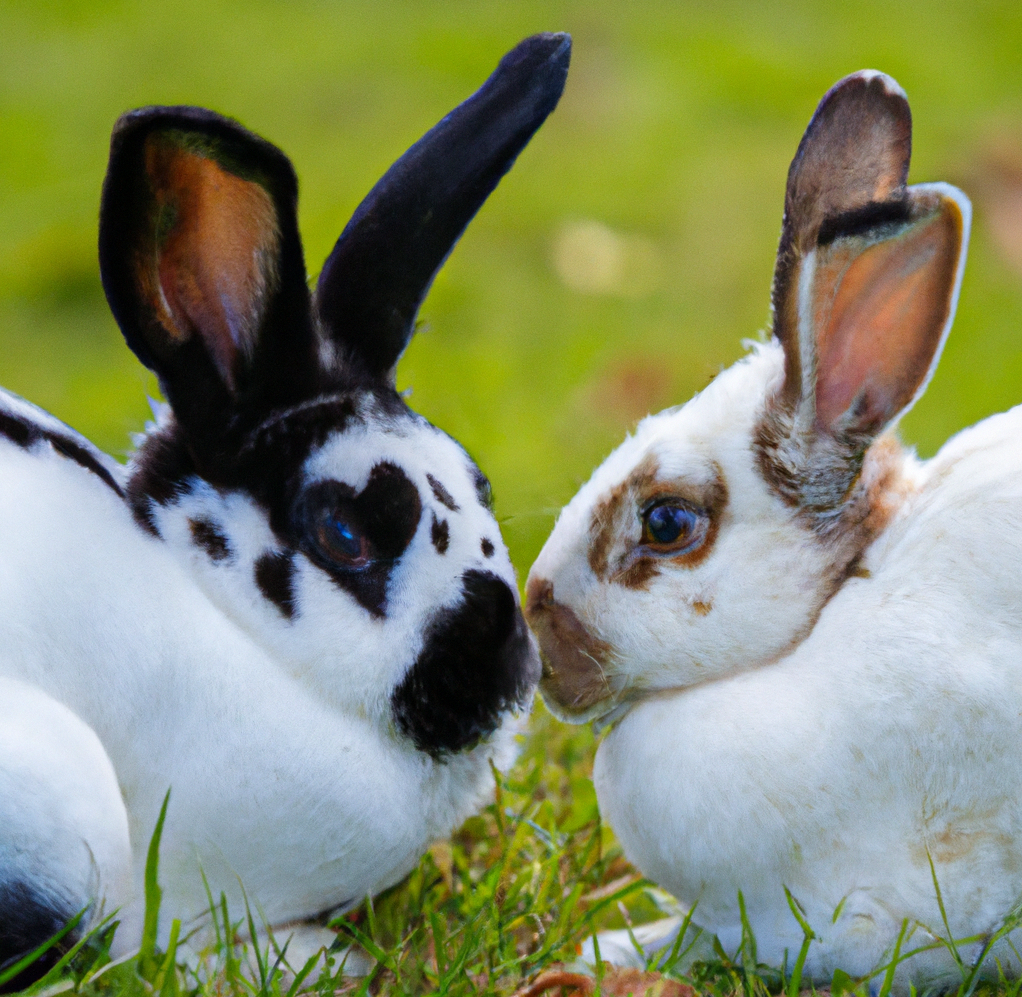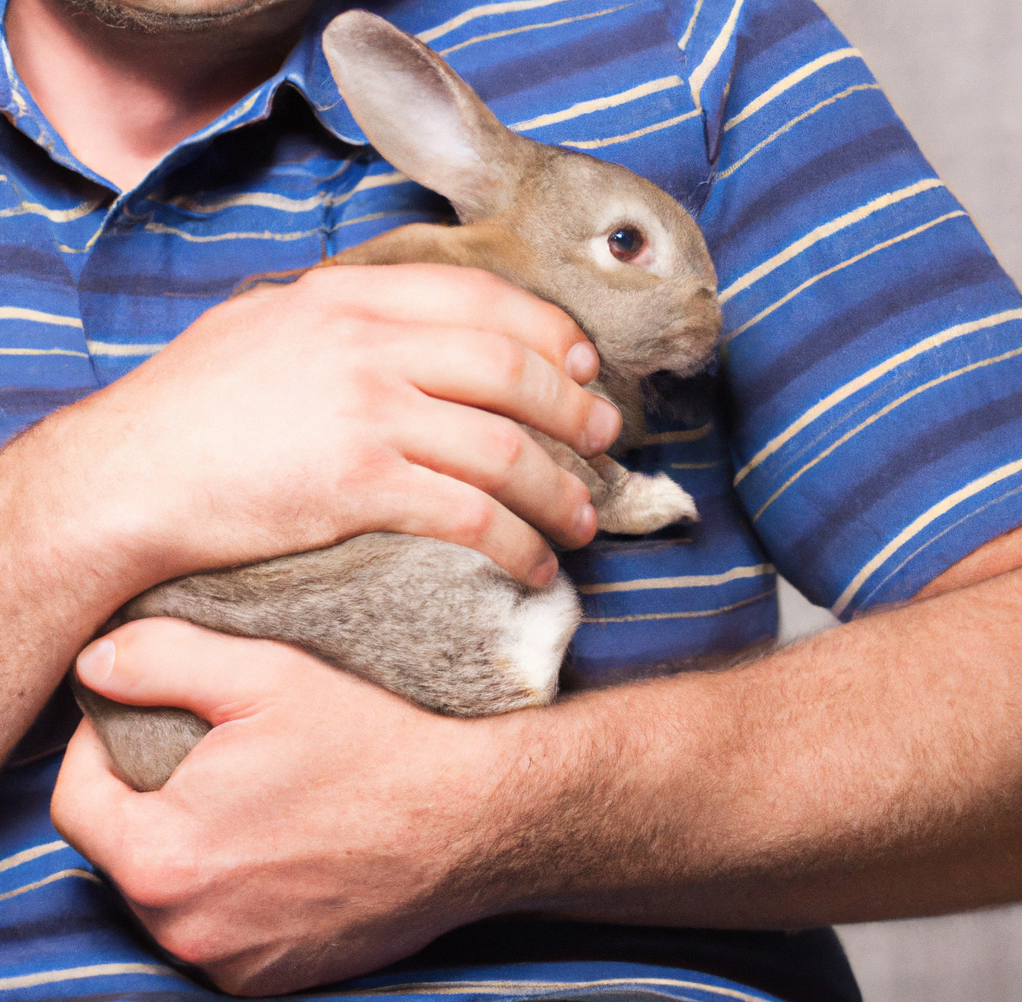Rabbits have a long history of being kept as pets and have been a part of people’s lives for centuries. But did you know that rabbits can also be beneficial to humans in many ways? From providing food to offering companionship, rabbits can have a positive impact on our lives. This article will explore the various ways in which rabbits can benefit humans, from providing food to being a source of companionship. We’ll also look at the various types of rabbits and their unique characteristics. So if you’re considering adding a bunny to your home, read on to find out how rabbits can benefit you and your family.
Exploring the Ecological Benefits of Rabbits in Human Communities
Rabbits are often considered to be a pest species due to their tendency to overgraze and damage agricultural crops. However, in recent years the role of rabbits in human communities has been increasingly recognized as providing a range of ecological benefits.
Rabbits are a keystone species, meaning their presence can have a disproportionate impact on their environment. By grazing on grasses and other vegetation, rabbits can prevent the encroachment of woody vegetation and maintain open grassland. This can be beneficial for other species such as ground-nesting birds and small mammals, which rely on open grassland for foraging and nesting.
The presence of rabbits can also benefit soil health. Their grazing and burrowing activities help to aerate and mix the soil, allowing water and nutrients to penetrate more deeply and encouraging the growth of beneficial soil bacteria. Rabbits also help to stimulate the growth of new grasses, which can improve the fertility of the soil.
Rabbits are also an important food source for many species of predators. In some parts of the world, rabbits can provide an important source of food for local wildlife, such as foxes and birds of prey. This helps to maintain healthy populations of these predators, which can in turn help to control other potentially damaging species, such as mice and rats.
Finally, rabbits can also provide a source of food for humans. In some parts of the world, rabbit meat is an important source of protein for local communities. In addition, rabbits can also be bred for their fur, which can be used to make clothing and other items.
In conclusion, rabbits can provide a range of ecological benefits to human communities. By maintaining open grassland and stimulating soil fertility, rabbits can help to create a healthier environment for both humans and other species. They can also provide an important source of food for local wildlife and humans. It is important that we recognize the role of rabbits in our communities and work to ensure their populations remain healthy and sustainable.
How Rabbits Support Sustainable Agriculture Practices

Rabbits are an integral component of sustainable agriculture practices. They are often seen as a viable, alternative source of protein and can be used to provide organic fertilizer for crops. Rabbits can also help reduce the amount of pesticides used in traditional farming practices and are a beneficial addition to any farming operation.
Rabbits are known for their ability to reproduce quickly and can provide a sustainable food source for humans. As herbivores, they are able to graze on grass and weeds, therefore reducing the need for chemical fertilizers and pesticides. This can help reduce the environmental impact of traditional farming methods, as well as reducing the cost of production. Rabbits are also more efficient than other animals at converting feed into meat and are able to be grown in smaller spaces with fewer resources.
Rabbits can also be used to produce organic fertilizer, which can be used to improve soil health and fertility. Rabbit manure is high in nitrogen, potassium, and phosphorus, which are essential nutrients for plants. Rabbit manure is also known to be rich in beneficial micro-organisms, which can help improve soil structure and promote healthy root growth.
In addition to providing a viable food source and organic fertilizer, rabbits can also help reduce the need for pesticides. Rabbits are known to eat harmful insect pests, such as aphids, mites, and grubs, which can help keep pest populations in check. This can reduce the amount of pesticides used in conventional farming operations, which can help reduce environmental pollution.
Overall, rabbits are an important part of sustainable agriculture practices. They can provide a sustainable food source, organic fertilizer, and help reduce the need for pesticides. They are relatively low-maintenance and can be a beneficial addition to any farming operation.
Uncovering the Nutritional Benefits of Rabbit Meat
Rabbit meat is becoming increasingly popular in the culinary world due to its many nutritional benefits. Rabbit is an excellent source of protein, with an average of 19.4g per 100g. Rabbit is also lower in fat and cholesterol than other sources of protein, such as beef and chicken, making it a healthier option. Additionally, rabbit is low in sodium, containing only 60mg per 100g.
Rabbit is also an excellent source of essential vitamins and minerals. It is rich in vitamin B12 and selenium, both of which are important for the proper functioning of the body. Rabbit also contains zinc, phosphorus, and iron, all of which are essential for maintaining good health. Rabbit meat is also an excellent source of niacin, which helps to regulate blood sugar levels, as well as riboflavin, which helps to convert food into energy.
Rabbit meat is also a good source of omega-3 fatty acids, which are important for heart health. Rabbit contains a higher ratio of omega-3 fatty acids than other meats, making it a great choice for those looking to improve their cardiovascular health. Rabbit is also rich in conjugated linoleic acid (CLA), which helps to reduce inflammation and improve cholesterol levels.
When it comes to buying rabbit meat, it is important to ensure that it is ethically sourced and raised in humane conditions. Look for rabbit meat that is certified organic and free-range, as this will ensure that the animal was raised in a healthy, natural environment.
Overall, rabbit meat is an excellent source of protein and essential vitamins and minerals. It is low in fat and cholesterol, and high in omega-3 fatty acids and CLA. When buying rabbit meat, it is important to select ethically sourced and humanely raised options. By doing so, you can enjoy the many nutritional benefits of rabbit meat while supporting ethical farming practices.
The Economic Impact of Rabbit Breeding and Farming
Rabbit breeding and farming has been a source of income for many people in various parts of the world. This industry has grown in recent decades, due to the increasing demand for rabbit meat and fur. Rabbit breeding and farming can have a positive economic impact, providing jobs and income, as well as a source of food for local communities.
Rabbit breeding and farming can help to create jobs and generate income. This is especially true in developing countries, where the industry can provide employment opportunities for farmers, breeders, and other associated workers. Rabbit farming also has the potential to create a secondary economy, as the industry can provide jobs for those involved in the processing and sale of rabbit meat and fur. Rabbit meat is a popular source of protein, and fur can be used for clothing and other products.
Rabbit breeding and farming can also benefit local communities. In some areas, rabbits may be raised for food, providing a source of nutrition for those who cannot afford to buy other sources of protein. Rabbit farming can also be a source of income for those living in rural communities, where other forms of employment are scarce. Rabbits can also be used as a source of fertilizer, providing the nutrients needed to help local farmers produce higher crop yields.
The economic impact of rabbit breeding and farming is far-reaching. It can create jobs, generate income, and provide a source of nutrition for local communities. Furthermore, rabbit farming can help to support the local economy, as the industry can create jobs and provide a source of income for those involved. This can help to reduce poverty and improve the quality of life for many people around the world.
The Role of Rabbits in Traditional Medicine Practices

Rabbits have been used as a source of traditional medicine for centuries in many cultures around the world. Rabbits are considered to have a wide range of medicinal properties, which are thought to be beneficial in treating a variety of medical conditions.
In traditional Chinese medicine, rabbit parts such as liver, kidney, heart, and feet are believed to have certain medicinal properties. Rabbit parts are used to make traditional Chinese medicine formulations such as soups, pills, and powders. These formulations are thought to be effective in treating digestive problems, headaches, fatigue, and even some forms of cancer.
Rabbit meat is a popular traditional medicine ingredient in North America. In some Native American cultures, rabbit meat is believed to have the power to heal ailments such as joint pain and muscle weakness. The meat is also said to be an effective treatment for skin conditions and respiratory infections.
In Europe, rabbits are particularly associated with homeopathic remedies. Homeopathic remedies made from rabbit parts are thought to help treat a range of illnesses, from headaches and migraines to mental health issues such as depression and anxiety.
In Africa, rabbits are used in traditional medicine to treat a wide range of conditions, including malaria, asthma, and arthritis. In some African cultures, rabbit parts are believed to be effective in treating fertility issues and even reversing the effects of aging.
Rabbit parts have been used in traditional medicine for centuries, and their medicinal properties are still being studied today. Research into the medicinal properties of rabbits is ongoing, and new discoveries are being made all the time. As research continues, it is likely that rabbits will remain an important part of traditional medicine for many years to come.
Examining the Psychological Benefits of Rabbit Companionship
Having a pet can bring about a wide range of psychological benefits for humans. Among the most commonly kept pets are rabbits, and these animals can have a particularly strong effect on the mental health of owners. Examining the psychological benefits of rabbit companionship can help us to understand why these animals are so beloved by so many people.
One of the most obvious benefits of rabbit companionship is the companionship itself. Rabbits are social animals, and they enjoy being around people. In fact, keeping a rabbit as a pet provides an opportunity for social interaction that can be incredibly valuable for owners who may not have other forms of social contact. Spending time with a rabbit can help to reduce feelings of loneliness and depression, while providing comfort and emotional support.
Rabbits are also incredibly calming and gentle animals. Spending time with a rabbit can help to reduce stress levels and provide a sense of peace and relaxation. Petting a rabbit can be a soothing experience, and watching them hop around a play area can be a calming distraction from everyday worries. This can help to provide a sense of grounding and stability in life, and can be a great source of calming mental stimulation.
Finally, rabbits can also be a great source of joy and happiness. Watching them play and interact with their environment can provide a source of entertainment and amusement, while their inquisitive and energetic nature can make them a delight to be around. These qualities can help to lift spirits and bring about a feeling of contentment.
Overall, it is clear that rabbit companionship can provide a range of psychological benefits. From providing companionship and reducing loneliness, to providing a sense of peace and relaxation, to bringing joy and entertainment, these animals can offer a great deal of emotional support and comfort. As such, it is no surprise that they are so beloved by so many people.
Conclusion
Rabbits are a valuable asset to humans, providing us with food, companionship, and even medical research. They are an important part of our history and culture, and are a source of joy and entertainment for many. With proper care, these gentle and intelligent creatures can provide us with many years of companionship and love.

